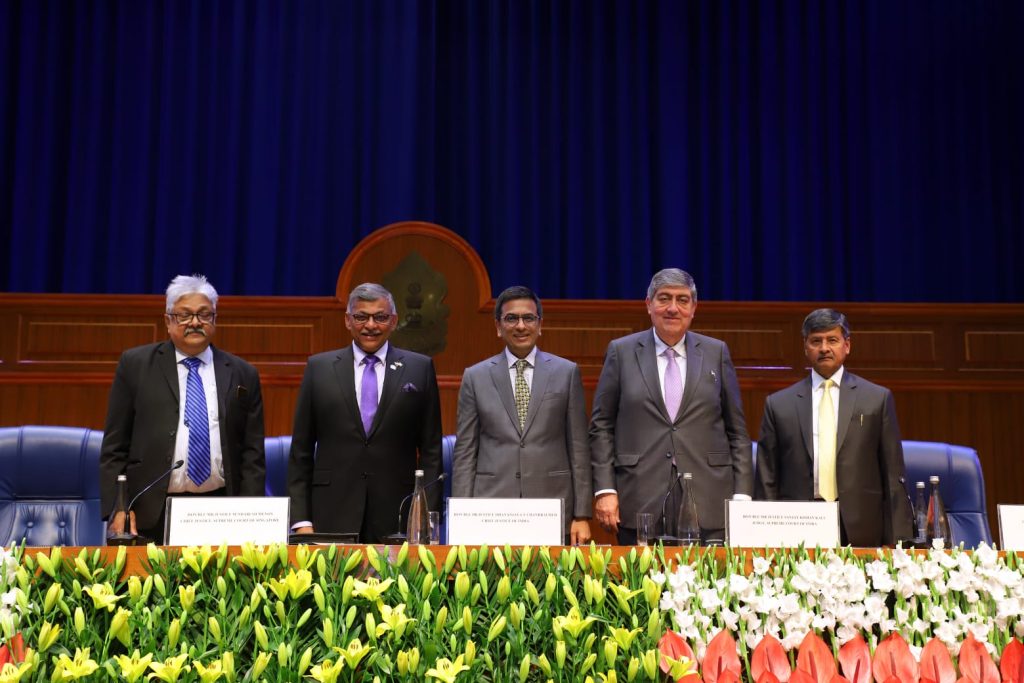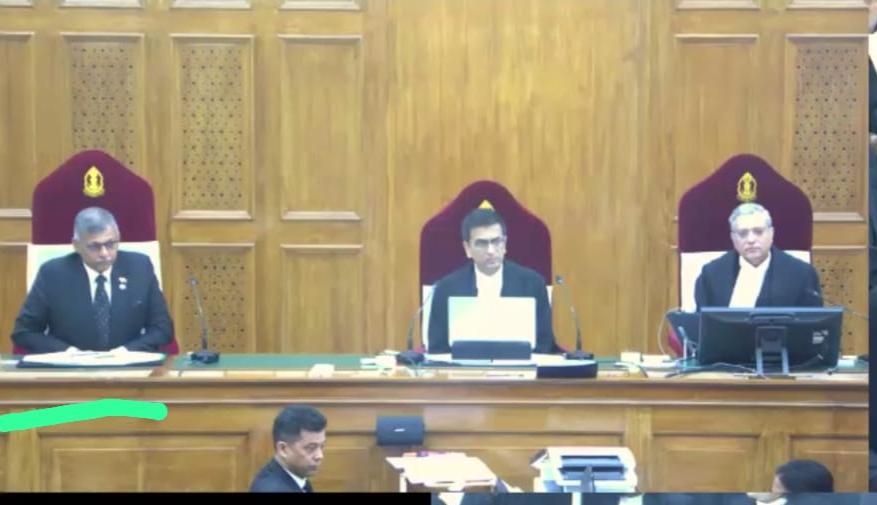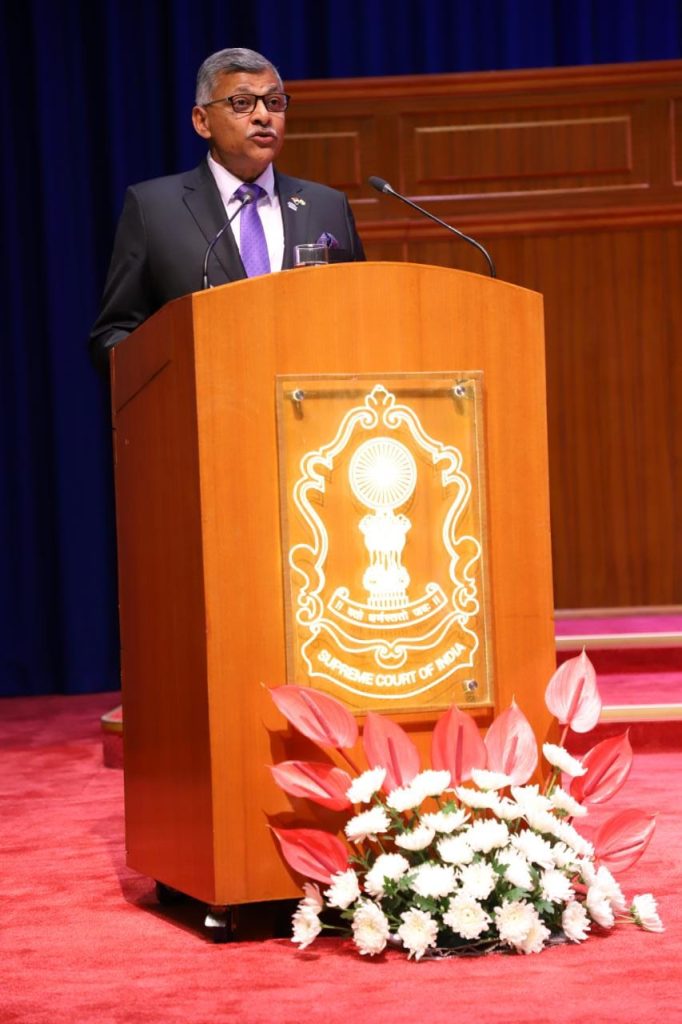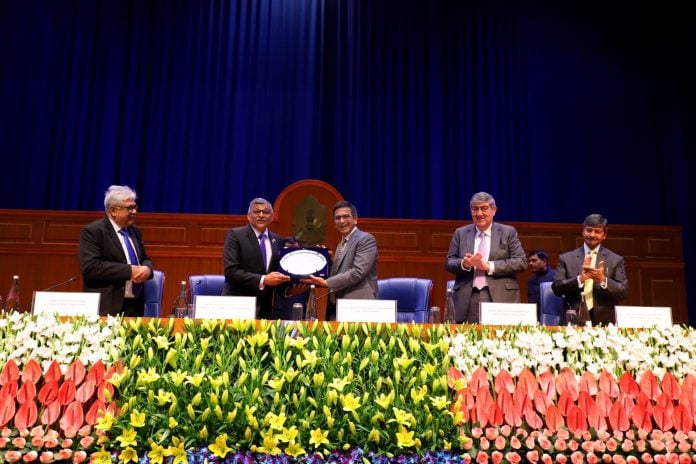Justice Sundaresh Menon, the Chief Justice of Singapore, has said the proliferation of misinformation and devaluation of truth, truth decay, attacked the justice system.
Delivering the first annual lecture on the 73rd Foundation Day of the Supreme Court of India on ‘The Role of the Judiciary in a Changing World’ on Saturday, Chief Justice Menon said it was essential that findings of the courts were accepted in the public sphere as generally reflecting the truth.
If that was not the case, court rulings become another voice in an endless clamour of opinions on the merits of a dispute, he noted in a reference to court decisions being debated endlessly on social media and other forums.
Justice Menon said this was exacerbated when baseless allegations were made against judges suggesting that their rulings merely reflected their personal agenda. This diminished the standing of judgments and the courts, ultimately undermining the stabilising work done by the judiciary.

Stating that the judiciary was currently facing a variety of challenges, he said the greatest challenge faced by the judiciary the world over was the increasingly evident breakdown of trust in public institutions.
Stating that distrust was the society’s current default emotion, he said the deficit of public trust could be due to truth decay, but was also a likely result of the sense that public institutions were failing to deliver. The courts did stand apart from other institutions in this regard, he added.
Public trust was critical for the judiciary because the legitimacy of judiciary rested on broad public acceptance that the lawyers and judges were reliable truth seekers and truth finders.
If the judiciary did not have this trust from the public, the courts would be left to operate solely on state power, noted the Chief Justice of Singapore.
He said traditionally, judges have held themselves aloof and fallen out of fashion. Thus, while judges usually let their verdicts speak for themselves, there was nothing wrong with their involvement in other facets of public engagement that spread awareness about judicial work.
Speaking about the Supreme Court of India, he said it was among the busiest courts in the world and its justices were among the hardest working judges because of the immense caseload they carried, adding that he had the privilege of observing the proceedings of the Supreme Court yesterday.

Highlighting the challenges that judicial systems around the world were either facing or were likely to face in the future, Chief Justice Menon said global challenges would give rise to new legal issues. They would first be political, but almost all of them would have legal dimensions.
Disputes were also becoming increasingly complex. There were two facets – technical complexity and evidential complexity. Complexification of disputes gave rise to the possibility of cases becoming too difficult for any single human adjudicator to process, he added.
He said in order to address the problem of complexification of disputes, the judiciary could not rely solely on traditional case management tools, but needed to come up with new and radical ways to downsize the disputes or face a real crisis of capacity.
The Singapore CJ further spoke about legal issues increasingly becoming global, disregarding boundaries. He said one of the reasons for this could be the world becoming more economically interconnected than ever before.
He said judges should become more sensitive towards development in foreign laws, so as to properly decide on disputes. Besides, they need to actively cooperate with foreign counterparts for effective cross-border concurrent management, added the Singapore Chief Justice.

As per Justice Menon, the unequal accumulation of wealth was likely to pose grave challenges for access of justice to those left behind, who would then feel increasingly marginalised and disillusioned with the justice system. The increasing cost and complexity were also likely to hamper the access to justice.
Chief Justice Menon gave suggestions for the judiciary to address these challenges. He said by redoubling the efforts to build a user-centric court system, investing in judicial education and training, pursuing continuous innovation in the justice system, and actively promoting international judicial engagement, the judiciary can tackle these challenges.
He warned that if the judiciary across the globe feil, it will lead to a breakdown of the rule of law. But if it remained successful in dealing with the perfect long storm looming over, it would help in guiding the society through the tempest.
For the first time ever in the history of India, the Supreme Court of India celebrated its Foundation Day, commemorating its 74 years of existence.
The event started with a welcome speech given by Supreme Court Judge, Justice Sanjay Kishan Kaul. Chief Justice of India D.Y. Chandrachud addressed the august gathering next, followed by Justice Menon delivering the historic lecture.
Justice Kaul traced the evolution of the Supreme Court from January 28, 1950 when it came into being. He said since its inception, the Apex Court has been cautiously supporting the nation-building process.
Delivering the Vote of Thanks, Supreme Court Judge Justice K.M. Joseph said the Chief Justice of Singapore was born to Indian parents, three years before Singapore became an independent nation. He said Chief Justice Menon wanted to become a pilot but since he wore spectacles from a young age, he could not pursue this dream and at the age of 12 years, he thought of becoming a lawyer.


